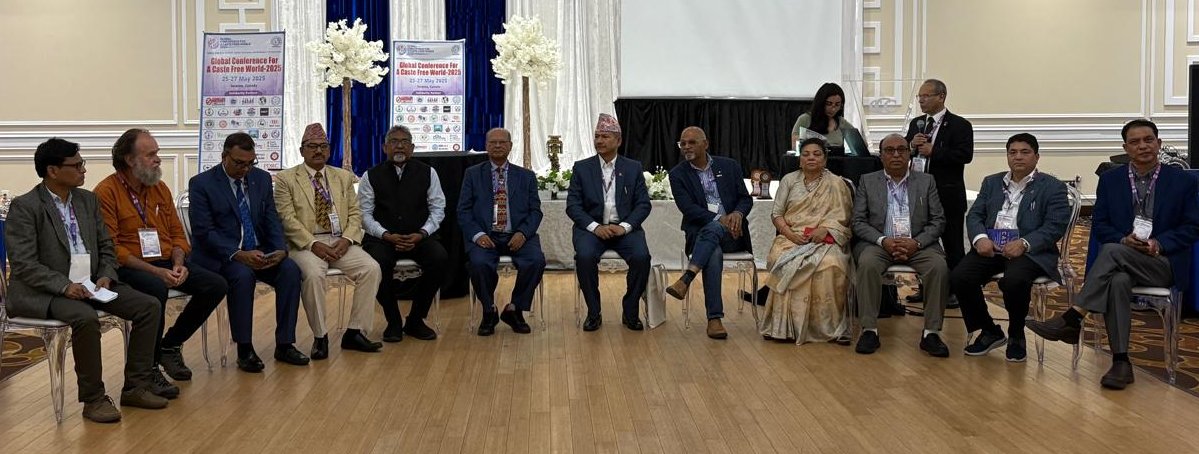Toronto Declaration 2025 Calls for Global Action to End Caste Discrimination: See all details
The Global Conference for a Caste-Free World 2025, held in Toronto from May 25–27, culminated with the adoption of the Toronto Declaration, a sweeping international call to dismantle caste-based and analogous systems of discrimination worldwide. The declaration demands urgent and coordinated action across governments, civil society, and international institutions to address centuries of injustice affecting over 250 million people globally.
The conference brought together survivors of caste violence, policymakers, academics, civil society leaders, and international allies. Participants called for systemic change rooted in human dignity, equality, justice, and solidarity. Delegates represented caste-oppressed communities such as Dalits in South Asia, the Burakumin in Japan, the Roma in Europe, and others including Quilombolas, Haratin, Māori, and Sami populations.
Citing data from 2022 and beyond, the declaration highlighted the alarming persistence of caste atrocities: over 57,000 crimes against Scheduled Castes were reported in India alone in 2022, and Nepal's Dalits remain 9 to 14 times more excluded than dominant castes in key sectors. Caste bias also remains widespread in global diasporas, including in workplaces and universities across North America and Europe.The Toronto Declaration presents a 17-point Global Strategic Agenda to eliminate caste discrimination.
Key demands include:
Global Recognition of Caste Discrimination as a human rights violation, urging the United Nations to treat it on par with racism and apartheid.Legal Reform and Enforcement, including integrating caste as a protected category in countries like Canada.Education Reform, with calls for global curricula to adopt anti-caste frameworks such as Critical Caste Theory.Community Empowerment, with support for caste-oppressed individuals to lead in economic, cultural, and political spheres.
Global Caste Discrimination Index, to track inequality and inform policy.Youth-Led Movements, Healing of Intergenerational Trauma, and Truth and Reconciliation Commissions to acknowledge historical injustices and chart a just future.
The declaration also recognizes the need for reparations, land reforms, and equitable political representation. It emphasizes that cultural change must accompany policy change, urging media, religious leaders, and educational institutions to confront caste-based ideologies.Delegates saluted the courage of individuals resisting caste oppression and acknowledged the legacy of figures like Dr. B.R. Ambedkar.
They emphasized that ending casteism is not just a South Asian issue but a global human rights imperative.The conference called on the UN, national governments, donors, academia, and civil society to adopt the Toronto Declaration and work toward abolishing caste discrimination within the next decade. The declaration positions itself as a “moral compass” for a caste-free world and sets a deadline to end caste-based harms by the end of the first quarter of the 21st century.
Also Read: Global leaders Call for Global Action to End Caste and Descent-Based Discrimination


